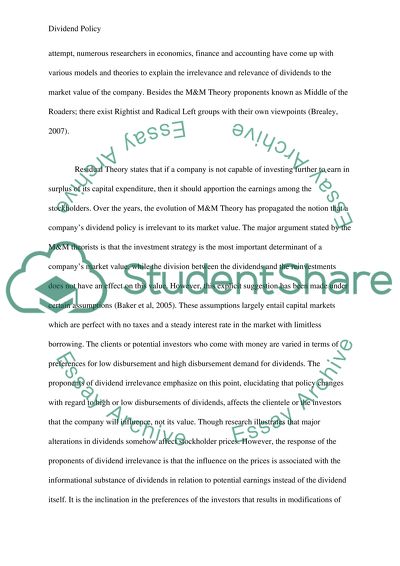Cite this document
(“For and Against the Irrelevance of Dividend Policy Essay”, n.d.)
For and Against the Irrelevance of Dividend Policy Essay. Retrieved from https://studentshare.org/finance-accounting/1445099-for-and-against-the-irrelevance-of-dividend-policy
For and Against the Irrelevance of Dividend Policy Essay. Retrieved from https://studentshare.org/finance-accounting/1445099-for-and-against-the-irrelevance-of-dividend-policy
(For and Against the Irrelevance of Dividend Policy Essay)
For and Against the Irrelevance of Dividend Policy Essay. https://studentshare.org/finance-accounting/1445099-for-and-against-the-irrelevance-of-dividend-policy.
For and Against the Irrelevance of Dividend Policy Essay. https://studentshare.org/finance-accounting/1445099-for-and-against-the-irrelevance-of-dividend-policy.
“For and Against the Irrelevance of Dividend Policy Essay”, n.d. https://studentshare.org/finance-accounting/1445099-for-and-against-the-irrelevance-of-dividend-policy.


